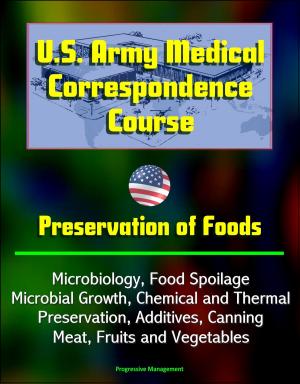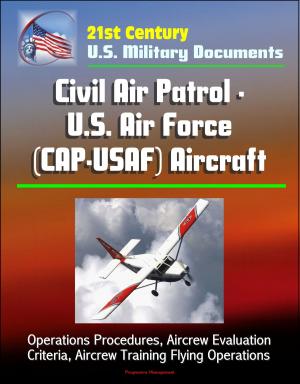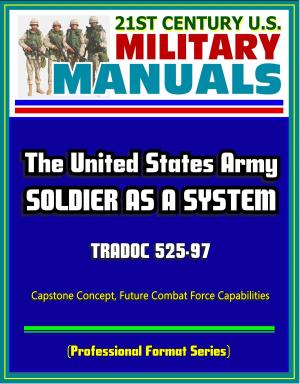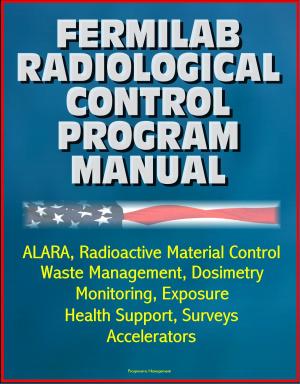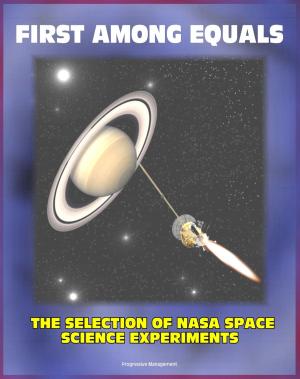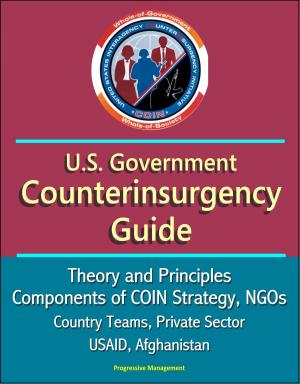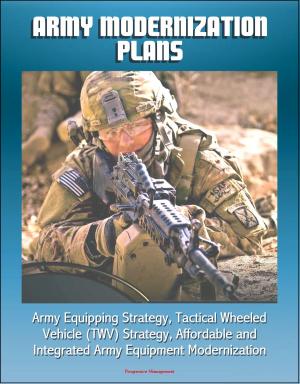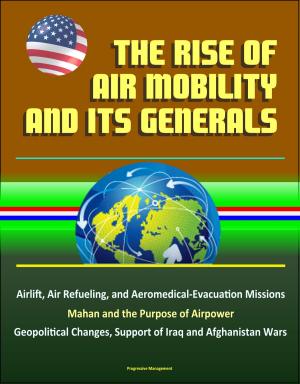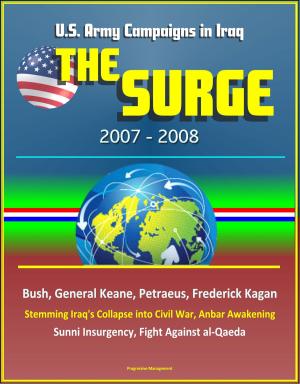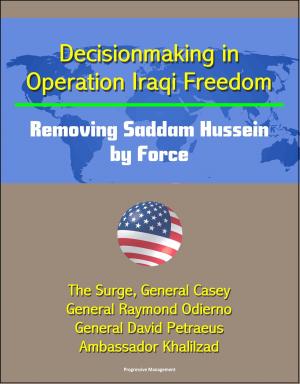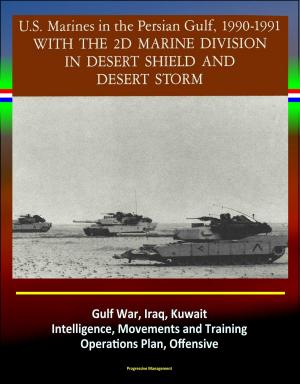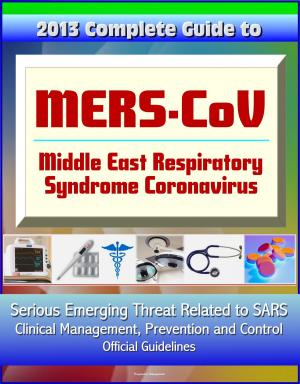2011 Essential Guide to the BP Deepwater Horizon Gulf of Mexico Oil Spill: Report of the Presidential Commission, Plus Gulf Coast Recovery Planning and Resource Guides, Bird Care Response Plan
Nonfiction, Science & Nature, Science, Biological Sciences, Ecology| Author: | Progressive Management | ISBN: | 9781458157263 |
| Publisher: | Progressive Management | Publication: | January 15, 2011 |
| Imprint: | Smashwords Edition | Language: | English |
| Author: | Progressive Management |
| ISBN: | 9781458157263 |
| Publisher: | Progressive Management |
| Publication: | January 15, 2011 |
| Imprint: | Smashwords Edition |
| Language: | English |
This compendium of four federal documents provides coverage of the oil spill and the ongoing restoration of the gulf, with the text of the January 2011 Report of the National Commission on the BP Deepwater Horizon Oil Spill and Offshore Drilling, plus the Recovery Planning Checklist for Communities, the Recovery Resource Guide for the Gulf Coast, and Best Practices for Migratory Bird Care During Oil Spill Response. Book 1: This report by the Presidentially-appointed Oil Spill Commission, released in January 2011, provides authoritative, official findings on the causes and consequences of the BP Deepwater Horizon disaster, with proposals for comprehensive reforms of both government and industry practices to overhaul the U.S. approach to drilling safety and greatly reduce the chances of a similar, large scale disaster in the future. Backed up by hundreds of footnotes, the contents include: The Deepwater Horizon, the Macondo Well, and Sudden Death on the Gulf of Mexico; The History of Offshore Oil and Gas in the United States; Oversight—and Oversights—in Regulating; The Macondo Well and the Blowout; Response and Containment; Oiling a Rich Environment: Impacts and Assessment; Recovery and Restoration; Changing Business as Usual; Investing in Safety, Investing in Response, Investing in the Gulf; American Energy Policy and the Future of Offshore Drilling. On April 20, 2010, while working on an exploratory well approximately 50 miles southeast of Venice, Louisiana, the semi-submersible drilling rig Deepwater Horizon experienced an explosion and fire, killing eleven workers. The damaged platform capsized and sank on April 22, 2010. The rig was owned by Transocean and under contract to British Petroleum (BP)Book 2: The primary function of this Checklist is to provide a planning template to communities that have been affected by the impacts of the Deepwater Horizon Oil Spill. These checklists are designed to assist communities that would like to undertake a recovery planning process but are not sure where to begin and how to organize their process. Book 3: Recovery Resource Guide for the Gulf Coast contains brief descriptions and contact information for programs from government, non-government, and corporate sources that may be able to assist local communities as they recover from the impacts of the Gulf Coast Oil Spill. This guide presents an array of programs that may be of assistance during disaster recovery – depending upon the circumstances, community needs, and available resources. Book 4: Best Practices for Migratory Bird Care During Oil Spill Response, produced by the U.S. Fish and Wildlife Service, includes coverage of Responsibility & Organization, Safety and Human Health, Training for Bird Rescue/Rehabilitation Personnel, Personal Protective Equipment, Personal Safety When Handling Birds, Zoonosis, Hazardous Substances, Volunteers, Deterrence, Aerial and Ground Surveys, Deterrence Program Considerations, Pre-emptive Capture, Capture, Handling, and Transport, Capture, Bird Handling, Bird Transport, Stabilization and Rehabilitation, Evaluation and Admission, Euthanasia, Necropsy, Cleaning, Husbandry, Facility Requirements, Release, Release Criteria, Post-Release Monitoring, Records, Scientific Records, Administrative Records, Sample Supply and Materials List, Zoonotic Diseases of Wild Birds, Deterrent Techniques, Bird Natural History and Special Concerns, Euthanasia Guidelines, Sample Forms and Formats. The goals of the project include the development of national best practices using established protocols for keeping unoiled birds away from an oil spill and for dealing with oiled birds.
This compendium of four federal documents provides coverage of the oil spill and the ongoing restoration of the gulf, with the text of the January 2011 Report of the National Commission on the BP Deepwater Horizon Oil Spill and Offshore Drilling, plus the Recovery Planning Checklist for Communities, the Recovery Resource Guide for the Gulf Coast, and Best Practices for Migratory Bird Care During Oil Spill Response. Book 1: This report by the Presidentially-appointed Oil Spill Commission, released in January 2011, provides authoritative, official findings on the causes and consequences of the BP Deepwater Horizon disaster, with proposals for comprehensive reforms of both government and industry practices to overhaul the U.S. approach to drilling safety and greatly reduce the chances of a similar, large scale disaster in the future. Backed up by hundreds of footnotes, the contents include: The Deepwater Horizon, the Macondo Well, and Sudden Death on the Gulf of Mexico; The History of Offshore Oil and Gas in the United States; Oversight—and Oversights—in Regulating; The Macondo Well and the Blowout; Response and Containment; Oiling a Rich Environment: Impacts and Assessment; Recovery and Restoration; Changing Business as Usual; Investing in Safety, Investing in Response, Investing in the Gulf; American Energy Policy and the Future of Offshore Drilling. On April 20, 2010, while working on an exploratory well approximately 50 miles southeast of Venice, Louisiana, the semi-submersible drilling rig Deepwater Horizon experienced an explosion and fire, killing eleven workers. The damaged platform capsized and sank on April 22, 2010. The rig was owned by Transocean and under contract to British Petroleum (BP)Book 2: The primary function of this Checklist is to provide a planning template to communities that have been affected by the impacts of the Deepwater Horizon Oil Spill. These checklists are designed to assist communities that would like to undertake a recovery planning process but are not sure where to begin and how to organize their process. Book 3: Recovery Resource Guide for the Gulf Coast contains brief descriptions and contact information for programs from government, non-government, and corporate sources that may be able to assist local communities as they recover from the impacts of the Gulf Coast Oil Spill. This guide presents an array of programs that may be of assistance during disaster recovery – depending upon the circumstances, community needs, and available resources. Book 4: Best Practices for Migratory Bird Care During Oil Spill Response, produced by the U.S. Fish and Wildlife Service, includes coverage of Responsibility & Organization, Safety and Human Health, Training for Bird Rescue/Rehabilitation Personnel, Personal Protective Equipment, Personal Safety When Handling Birds, Zoonosis, Hazardous Substances, Volunteers, Deterrence, Aerial and Ground Surveys, Deterrence Program Considerations, Pre-emptive Capture, Capture, Handling, and Transport, Capture, Bird Handling, Bird Transport, Stabilization and Rehabilitation, Evaluation and Admission, Euthanasia, Necropsy, Cleaning, Husbandry, Facility Requirements, Release, Release Criteria, Post-Release Monitoring, Records, Scientific Records, Administrative Records, Sample Supply and Materials List, Zoonotic Diseases of Wild Birds, Deterrent Techniques, Bird Natural History and Special Concerns, Euthanasia Guidelines, Sample Forms and Formats. The goals of the project include the development of national best practices using established protocols for keeping unoiled birds away from an oil spill and for dealing with oiled birds.

